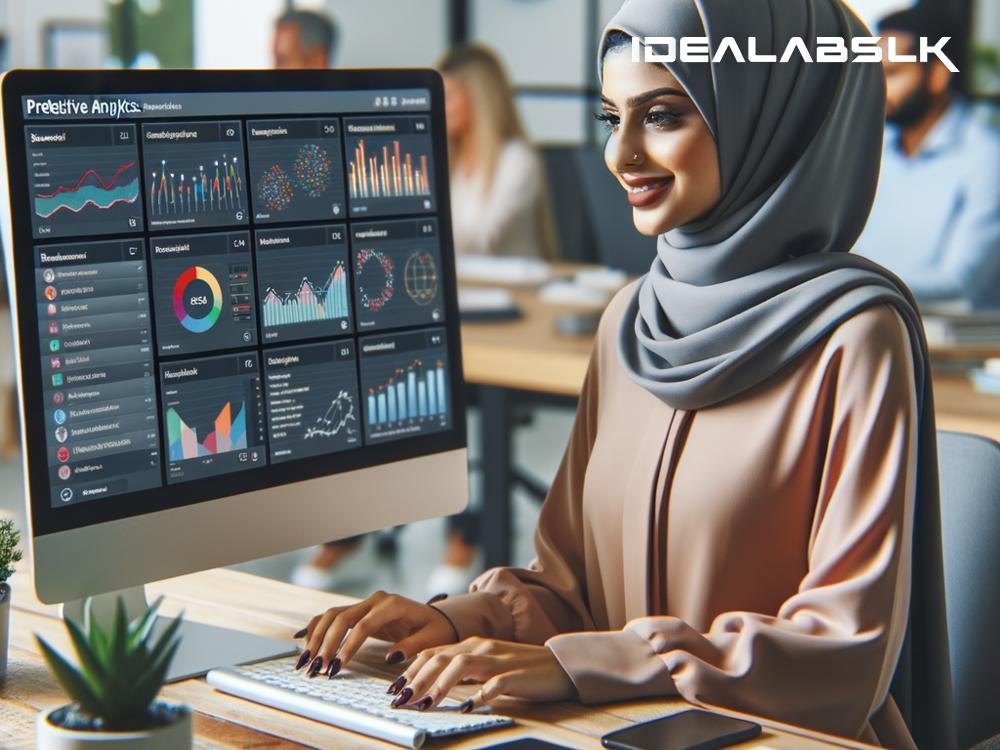AI-Powered Predictive Analytics: The Future of Retail Marketing Optimization
The retail world is rapidly changing, and businesses are always on the lookout for ways to stay ahead of the curve. Enter AI-powered predictive analytics, a game-changer that's transforming retail marketing optimization. This technology might sound complex, but it's essentially about predicting future trends and customer behaviors using data and artificial intelligence (AI). Let's break it down into simpler terms and explore how it's revolutionizing the retail industry.
Understanding AI-Powered Predictive Analytics
Imagine if you had a crystal ball that could tell you what your customers will want in the future. That's what AI-powered predictive analytics does, but instead of magic, it uses data and complex algorithms. This technology analyzes past and current data to make predictions about future events or behaviors. For retail businesses, this means getting insights into future consumer trends, product demands, and buying behaviors.
Why It's a Big Deal for Retailers
-
Personalized Marketing: Every shopper is different, and AI helps understand these differences. By predicting what customers might be interested in buying next, retailers can create personalized marketing messages. Think of receiving an offer for your favorite snack right before you realize you want it – that's personalization at its best.
-
Inventory Management: Predictive analytics can forecast product demand, helping retailers decide how much stock to keep. This means not having to say "sorry, we're out of stock" to your customers and not wasting money on excess inventory that doesn't sell.
-
Price Optimization: Changing prices based on demand, competitor pricing, and other factors can significantly increase sales and profits. AI can analyze these variables in real-time to suggest the best pricing strategies, ensuring you're not charging too much or too little.
-
Identifying Trends and Opportunities: Retail is all about staying relevant. Predictive analytics can spot trends virtually as they're beginning, allowing retailers to capitalize on them before they become mainstream. This could be anything from a new fashion style to a surge in eco-friendly products.
Real-life Examples
To bring this closer to home, let's look at how some retailers are using AI-powered predictive analytics:
-
Fashion Retailers: They're using AI to predict what styles and colors will be in vogue next season, tailoring their stock to meet these trends. This has led to lower markdowns and higher sales.
-
Grocery Stores: By analyzing purchase history, weather data, and local events, supermarkets can predict spikes in demand for certain products (like barbecue supplies on a sunny weekend) and stock up accordingly.
-
Online Retail Giants: Platforms like Amazon use predictive analytics to recommend products to customers based on their browsing and purchase history. This not only boosts sales but also enhances the shopping experience.
Overcoming Challenges
Despite its benefits, implementing AI-powered predictive analytics isn't without its challenges. Data privacy is a significant concern, as businesses must ensure they're using customer data ethically and legally. Additionally, the accuracy of predictions depends on the quality and quantity of data available, making robust data collection and management practices essential.
Another challenge is the "black box" nature of AI algorithms, which can sometimes make it difficult to understand how predictions are made. Retailers need to balance reliance on AI with human oversight to ensure decisions make sense and align with business goals.
Looking Ahead
The potential of AI-powered predictive analytics in retail is vast, and we're just scratching the surface. As technology advances and businesses become more adept at handling big data, we can expect even more innovative applications. From virtual dressing rooms that recommend outfits based on your style and body type to smart shelves that automatically reorder products, the future of retail is bright and data-driven.
In conclusion, AI-powered predictive analytics is not just a trendy buzzword; it's a powerful tool that's reshaping the retail landscape. By offering deep insights into customer behavior and future trends, it allows retailers to make more informed decisions, deliver personalized experiences, and stay competitive in a fast-paced market. As we look to the future, embracing this technology will no longer be an option but a necessity for retailers aiming for success.

